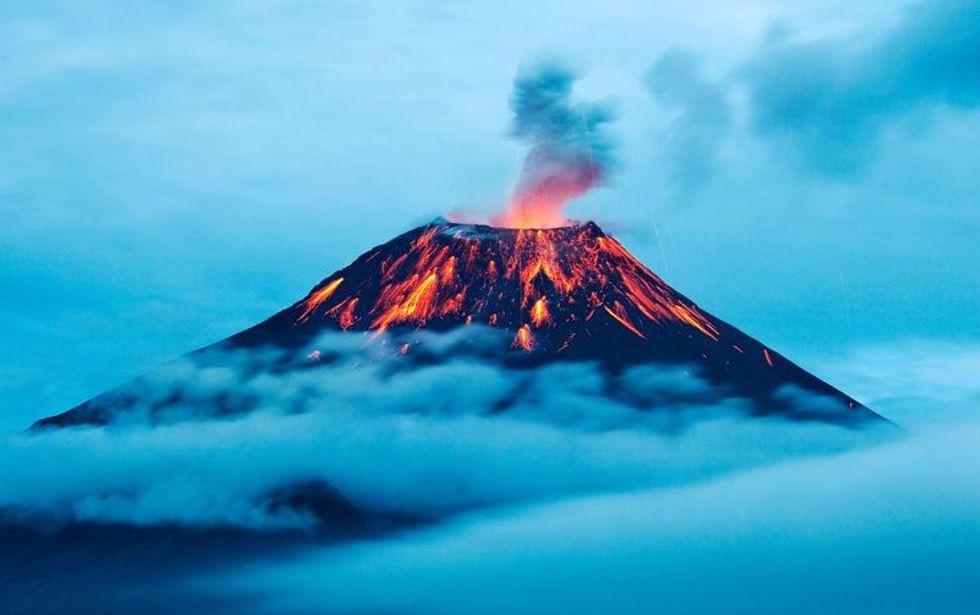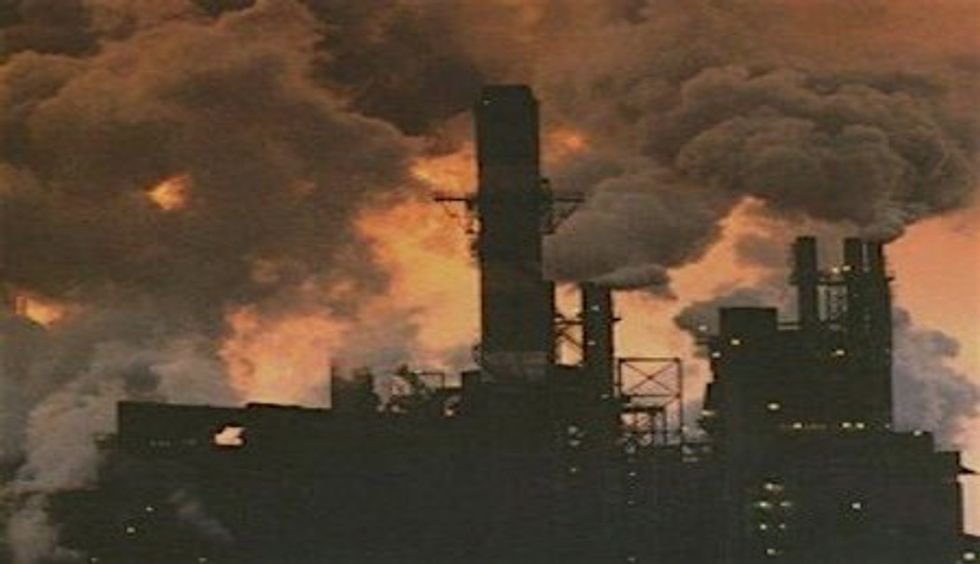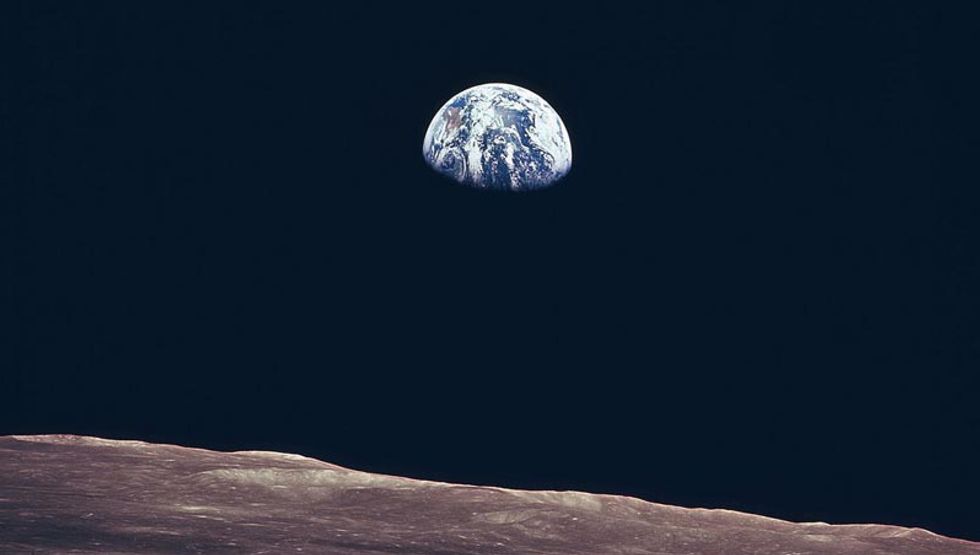Vast climate changes are not new to Earth. 450 million years ago most of the present-day United States was underwater. 20,000 years ago New England was buried beneath a mile-thick glacier. Although climate change triggered mass extinctions, life on Earth continued.
But why? Climate change turned Venus into a barren hellscape, but Earth never became hot or cold enough to wipe out all life.
This question led to speculation on the existence of a planetary thermostat that keeps climate change in check. A new study published in the journal Geochemical Perspectives Letters provides the first-ever evidence of its existence.
The climate must be relatively constrained. It can’t change too much, otherwise life would go extinct.”
“There must be some mechanism that prevents the climate from going completely crazy,” according to Philip Pogge von Strandmann, a geochemist at University College London and lead author of the study.
“Weathering thermostat” is the name assigned to that mechanism. Carbon dioxide (CO2) traps heat, keeping the Earth warm. A drop in CO2 brings about lower temperatures and a potential ice age. A drastic increase in CO2 brings melting of the polar ice caps and flooding.
However, Earth regulates CO2 through weathering which sustained some life on the planet during previous extreme hot or cold periods. Atmospheric CO2 dissolves in rainwater and combines with rocks to form bicarbonate runoff.

If you a dissolve a rock in water — rain water, river water — that process takes CO2 out of the atmosphere and puts it in the water as bicarbonate.”
“That goes from the rivers into the ocean,” said Pogge von Strandmann. Once in the ocean, the bicarbonate combines with calcium and forms limestone. “That locks in the carbon dioxide.”
Heat speeds up chemical reactions, causing rocks and rainwater to draw down CO2 levels more rapidly which cools the planet. Cold temperatures slow down reaction, keeping Earth from getting too cold.
CO2 trapped in limestone eventually returns to the atmosphere. Limestone drawn under the Earth’s crust by tectonic shifts becomes part of the Earth’s mantle. CO2 then separates from the limestone and returns to the atmosphere through volcanic eruptions.
During warm periods, the weathering thermostat removes CO2 from the atmosphere faster than volcanoes can build it up. The total planetary atmospheric volume of CO2 goes down, cooling the Earth. During cold periods, volcanoes add CO2 faster than it’s removed, warming the Earth.

“It had been assumed for ages. It was in all the climate models, but it had never actually been proven,” said Pogge von Strandmann. “We actually now have some evidence from past climate events that weathering responds to temperature.”
Pogge von Strandmann and his team looked for evidence in limestone deposits, which contain lithium isotopes from weathering. The concentration of lithium varies across layers of limestone. More lithium corresponds with warmer periods when reactions sped up.
Weathering is the reason Earth didn’t share Venus’ fate. Rising levels of CO2 rendered Venus inhospitable. The atmosphere of Venus is almost entirely carbon dioxide. The average temperature is more than 800 degrees F (427 degrees C). On Earth, 60 degrees F (16 degrees C) is the planetary average.
“It’s some degree of liquid water interacting with rock that keeps the Earth’s climate stable over long time periods,” said Pogge von Strandmann.
However, this is of little comfort with regard to human-caused climate change. Weathering climate changes take many thousands of years.
“We know that weathering will increase [as the planet gets warmer],” he said. “We know that it will remove CO2…”
...but it will be at least 100,000 years or so before it would allow the climate to recover back to pre-industrial conditions.”
By burning fossil fuels, humans transform the climate in a matter of decades, not millennia.

“There are movements to see if we can harness this process artificially to remove CO2 faster,” said Pogge von Strandmann. “You get a lot of very fine-grained silicate rock and plow it into fields all around the Earth. The finer grain the rock, the quicker it dissolves, and the faster it removes CO2.”
This method is only in the experimental phase. Scaling the process up to fight manmade climate change may not be possible.
“You would have to transport the silicate rock around from the place it’s being mined to the place you want to plow it into the fields, and you have to expend energy grinding it down to a small grain size,” said Pogge von Strandmann. “There are lots of experiments going on at the moment to find out what grain size we would need and what the consequences are in terms of effectively plowing lots of rock powder into fields.”
But by looking to the geological record, environmental scientists can gauge the potential consequences of induced rapid weathering. Geological history shows a surge of bicarbonate in the ocean triggers a plankton bloom. Plankton consume the oxygen in the water, suffocating other sea creatures dependent on that oxygen. Manmade weathering may cause more harm than good.
Earth’s climate fluctuates over time. Life continued to exist through prior extremes, but the rapid warming caused by burning fossil fuels continues to make life much harder for humans. It is necessary to limit CO2 emissions to ensure Earth remains viable for our species.
“The Earth’s climate varies a lot. It has varied a lot in the past,” said Pogge von Strandmann.
The point is, of course, that every time it varies a lot, it causes a big, mass extinction.”
And without changes, humans may go the way of the dinosaur.








 The Benny Show
The Benny Show





 @neilforreal/Bluesky
@neilforreal/Bluesky @savannahcat/Bluesky
@savannahcat/Bluesky @qadishtujessica.inanna.app
@qadishtujessica.inanna.app @v-ron/Bluesky
@v-ron/Bluesky @nelnelnellie/Bluesky
@nelnelnellie/Bluesky @beatlenumber9/Bluesky
@beatlenumber9/Bluesky @pinkzombierose/Bluesky
@pinkzombierose/Bluesky
 @theunobsolete/TikTok
@theunobsolete/TikTok @theunobsolete/TikTok
@theunobsolete/TikTok @theunobsolete/TikTok
@theunobsolete/TikTok @theunobsolete/TikTok
@theunobsolete/TikTok @theunobsolete/TikTok
@theunobsolete/TikTok @theunobsolete/TikTok
@theunobsolete/TikTok @theunobsolete/TikTok
@theunobsolete/TikTok @theunobsolete/TikTok
@theunobsolete/TikTok @theunobsolete/TikTok
@theunobsolete/TikTok @theunobsolete/TikTok
@theunobsolete/TikTok @theunobsolete/TikTok
@theunobsolete/TikTok @theunobsolete/TikTok
@theunobsolete/TikTok @theunobsolete/TikTok
@theunobsolete/TikTok @theunobsolete/TikTok
@theunobsolete/TikTok @theunobsolete/TikTok
@theunobsolete/TikTok @theunobsolete/TikTok
@theunobsolete/TikTok @theunobsolete/TikTok
@theunobsolete/TikTok
 @laysuperstar/TikTok
@laysuperstar/TikTok @laysuperstar/TikTok
@laysuperstar/TikTok @laysuperstar/TikTok
@laysuperstar/TikTok @laysuperstar/TikTok
@laysuperstar/TikTok @laysuperstar/TikTok
@laysuperstar/TikTok @laysuperstar/TikTok
@laysuperstar/TikTok @laysuperstar/TikTok
@laysuperstar/TikTok @laysuperstar/TikTok
@laysuperstar/TikTok @laysuperstar/TikTok
@laysuperstar/TikTok @laysuperstar/TikTok
@laysuperstar/TikTok @laysuperstar/TikTok
@laysuperstar/TikTok @laysuperstar/TikTok
@laysuperstar/TikTok @laysuperstar/TikTok
@laysuperstar/TikTok @laysuperstar/TikTok
@laysuperstar/TikTok @laysuperstar/TikTok
@laysuperstar/TikTok